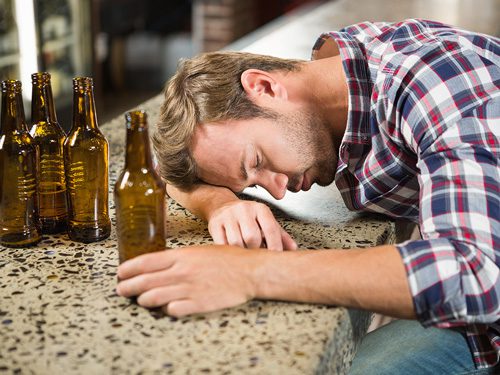 Binge drinking has been the subject of multiple hit films, tv shows, and social media memes, but it’s not just harmless fun.
Binge drinking has been the subject of multiple hit films, tv shows, and social media memes, but it’s not just harmless fun.
For many people, experimenting with binge drinking is the first step down the path to an alcohol use disorder.
About Binge Drinking
When most people think of binge drinking, they think of someone getting wild and crazy at a party. However, binge drinking has nothing to do with where you are drinking, and it involves a lot less alcohol than you’d expect.
For men, the Substance Abuse and Mental Health Services Administration (SAMHSA) says having 5 or more drinks on the same occasion at least once in the last 30 days constitutes binge drinking. For women, that number drops to 4 in the same time frame.
If you consume this amount of alcohol in a two-hour time span, this is roughly the amount you’d need to be considered legally impaired for the purpose of operating a motor vehicle. It would raise your blood alcohol content (BAC) to 0.8%.
The Centers for Disease Control (CDC) reports that 1 in 6 adults in the United States binge drinks four or more times per month. Binge drinking is most common among men and people ages 18-34.
While moderate drinking has been thought to offer mild protective health benefits, binge drinking only creates adverse health effects. It increases your risk of being involved in an accident, crime, or risky sexual encounters. Over time, binge drinking also raises your risk of developing several types of cancers, high blood pressure, and heart attack.
The two groups of people who face the highest health risks from binge drinking are teens and pregnant women. Drinking to excess while the brain is still developing can create permanent cognitive changes. Pregnant women who engage in binge drinking put their babies at risk of miscarriage, stillbirth, or fetal alcohol spectrum disorders that can result in serious physical and mental birth defects.
How to Tell if You May Have a Drinking Problem
Binge drinking doesn’t necessarily mean you have a drinking problem. Many people who engage in binge drinking only do so sporadically and feel no ill effects between binges. However, binge drinking is considered a well-known risk factor for an alcohol use disorder, with over 90% of adults who drink excessively saying they’ve engaged in binge drinking in the last 30 days.
The diagnostic criteria for an alcohol use disorder focuses on how your alcohol consumption affects your life, while the criteria for binge drinking simply focuses on how much alcohol you consume at one time.
Since there is evidence to suggest that alcohol use disorders run in families, people who have parents, grandparents, or siblings with a drinking problem may have the greatest difficulty regulating their alcohol consumption while binge drinking.
If you’re worried about your drinking, questions to ask yourself include:
- When you drink in a group, do you continue drinking after everyone else has stopped?
- Is drinking your default response to stressful life situations?
- Does your tolerance for alcohol seem to be increasing?
- Does it make you uncomfortable to be in certain situations without drinking?
- Do you feel guilty about your drinking?
- When you’re unable to drink, do you notice shaking, sweating, loss of appetite, and other uncomfortable withdrawal symptoms?
- Do you have frequent blackouts when you drink?
- When you’re sober, do you regret some of the things you did when you were drinking?
- Are you experiencing problems at work or school because of your drinking?
- Have your friends and/or family members expressed concern about your drinking?
- Have you been charged with a DUI or other alcohol-related offense?
- Do you feel as though it would be impossible for you to stop drinking?
The more of these questions you can answer yes to, the more likely it is that you have an alcohol use disorder. Alcohol use disorders can affect people of all ages, races, genders, and socioeconomic backgrounds. An alcohol use disorder is an illness that alters your brain chemistry and can’t be cured with willpower alone.
Getting the Help You Need
Addressing alcohol abuse requires developing a personalized treatment plan that combines individual, group, and family therapy with experiential therapies such as art therapy, music therapy, and equine therapy. This helps you learn to process your emotions and cope with stressful situations without turning to alcohol.
Many people who abuse alcohol also suffer from mood disorders such as anxiety and depression. If you have a co-occurring disorder or dual diagnosis, it’s vital for both issues be addressed simultaneously. A true recovery heals the mind, body, and spirit.
If you or someone you love is in need of alcohol or drug treatment, contact us anytime at (713) 769-0102. We are here to help.
Sources:
Fact Sheets – Binge Drinking. Centers for Disease Control and Prevention.
Am I Alcoholic Self Test. National Council on Alcoholism and Drug Dependence.
The Dangers of Binge Drinking. University of Rochester Medical Center.


